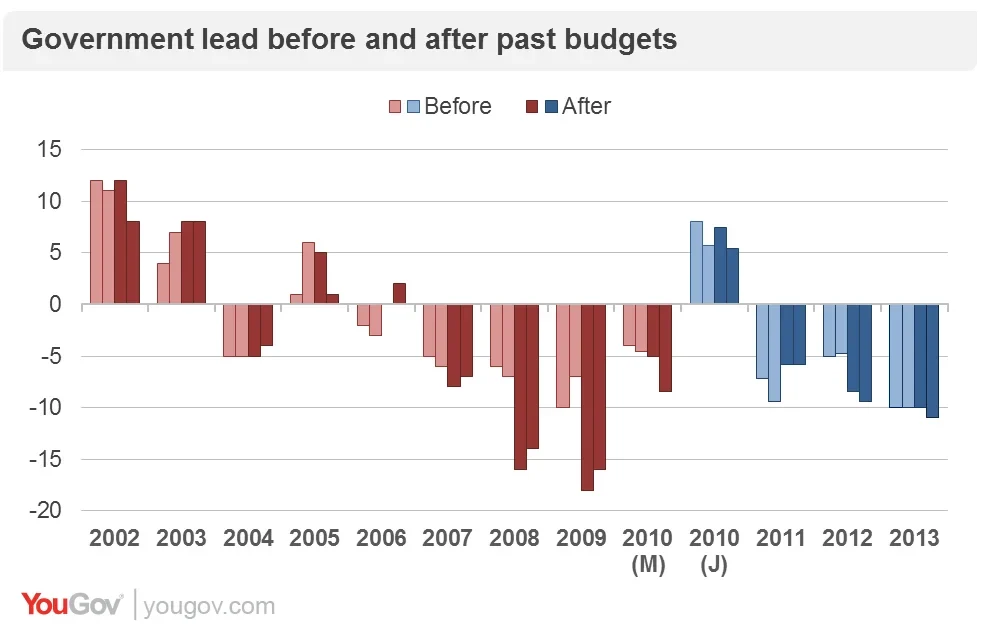When it comes to voting intention, budgets actually matter – but the impact is rarely positive
Most political events don't actually make much difference to voting intention. Budgets are one of the few regular events that break that rule, and they do quite often have a noticeable impact on how people would vote. The graph below show the government lead in our polls before and after each budget since 2002. From 2002 to 2009 they are the two polls before the budget and the two polls afterward, since we began daily polling in 2010 they are the weekly averages for the government lead in the two weeks before and after the budget.

The first thing to note is that there are genuine changes – budgets can really matter. In 2008 and 2009 Labour were doing significantly worse after the budget than before (in both cases Alistair Darling had to deliver bad economic news). In 2012 you can spot the impact of the "omnishambles budget", the mixture of granny tax, pasty tax and 50p tax rate that almost doubled Labour's lead over the Tories.
The second thing to note is that the impact of budgets is rarely positive. On the graph you can spot at least those three occasions when government support suffered from a bad budget, but it's difficult to point to a clear cut, unambiguous positive impact from a budget. The two most positive looking figures up there (2003 and 2006) are really pretty illusionary – 2003 was actually the Iraq invasion prompting a change, a closer look at the data in 2006 shows no clear pattern.
The media often talk about budgets being an opportunity for fancy giveaways, a vote winning opportunity. The past data suggests that's rarely the case. More generally they seem to be bullets to be dodged. In theory I'm sure it's possible for a government to win support from a good news budget with popular policies, but in practice the general theme seems to be that a successful budget is one the government gets through without damaging their support.
Image: Getty






